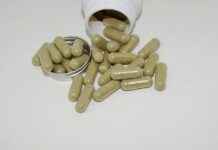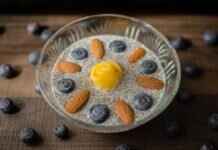Chia seeds have gained significant popularity in recent years, especially among women seeking to enhance their health and well-being. This article delves into the remarkable benefits of chia seeds, particularly focusing on hormonal balance and skin health. Additionally, we will explore their nutritional value and practical applications in everyday diets.
Chia seeds are tiny, nutrient-packed seeds derived from the Salvia hispanica plant, native to Central America. These seeds are celebrated for their impressive nutritional profile, being rich in omega-3 fatty acids, fiber, protein, and various essential vitamins and minerals. Their versatility makes them a popular addition to smoothies, salads, and baked goods.
Chia seeds play a crucial role in supporting hormonal balance in women. The combination of omega-3 fatty acids and dietary fiber in chia seeds contributes to regulating estrogen levels, which is vital for reproductive health and overall hormonal stability.
The omega-3 fatty acids found in chia seeds are essential for hormone production. These healthy fats help to reduce inflammation and support the synthesis of hormones, thereby promoting better hormonal health. Incorporating chia seeds into your diet can lead to improved mood and reduced symptoms of hormonal fluctuations.
The high fiber content in chia seeds aids digestion and helps to regulate blood sugar levels. This regulation prevents insulin spikes, which is important for maintaining hormonal balance. A stable blood sugar level can lead to fewer cravings and better overall health.
Beyond hormonal balance, chia seeds are also beneficial for skin health. Their rich antioxidant content, vitamins, and minerals contribute to a radiant complexion and overall skin vitality.
Chia seeds are packed with antioxidants that combat oxidative stress and free radicals. This protective quality helps shield the skin from aging and environmental damage, promoting a youthful appearance. Regular consumption of chia seeds can lead to healthier, more vibrant skin.
Chia seeds can absorb up to 12 times their weight in water, making them excellent for hydration. Proper hydration is essential for maintaining skin elasticity and preventing dryness. Including chia seeds in your diet can help keep your skin looking plump and youthful.
Incorporating chia seeds into your daily meals is both easy and versatile. Here are some practical ways to enjoy their benefits:
- Chia Seed Pudding: Mix chia seeds with milk or a dairy alternative and let them soak overnight for a delicious, nutritious treat.
- Chia Seeds in Smoothies: Add chia seeds to your smoothies for an extra boost of fiber and omega-3s, making your drink more filling.
- Baking with Chia Seeds: Incorporate chia seeds into your baking recipes, such as muffins or bread, to enhance their nutritional profile.
While chia seeds are generally safe for most women, some may experience digestive issues if consumed in excess. Understanding potential side effects is crucial for safe consumption.
Excessive intake of chia seeds can lead to bloating, gas, or constipation. It is important to gradually increase intake and ensure adequate hydration to avoid these issues.
Though rare, some individuals may experience allergic reactions to chia seeds. It’s essential to monitor for any adverse effects when introducing them into your diet.
In summary, chia seeds offer a plethora of benefits for women, particularly in terms of hormonal regulation and skin health. Their impressive nutritional profile makes them a valuable addition to any diet aimed at enhancing overall well-being. By incorporating chia seeds into your meals, you can enjoy their numerous health benefits while supporting your body’s unique needs.
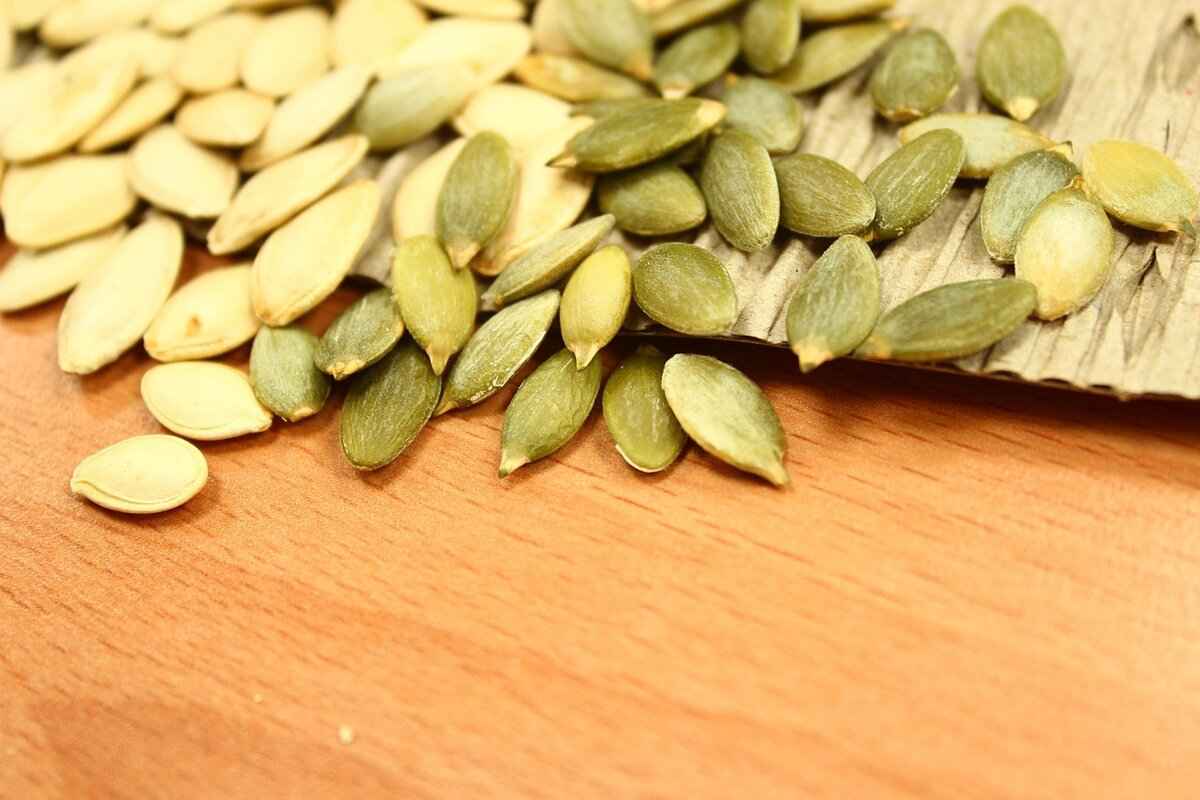
What Are Chia Seeds?
Chia seeds are tiny, yet incredibly powerful, nutrient-dense seeds that originate from the Salvia hispanica plant, which is native to Mexico and Guatemala. These seeds have gained immense popularity as a superfood due to their remarkable health benefits and versatility in various culinary applications. Packed with essential nutrients, chia seeds are a great addition to any diet, especially for women looking to enhance their overall health.
Chia seeds are a rich source of several key nutrients, including:
- Omega-3 fatty acids: These essential fats are crucial for heart health and brain function.
- Fiber: Chia seeds contain a significant amount of dietary fiber, aiding in digestion and promoting satiety.
- Protein: They provide a plant-based protein source that is beneficial for muscle repair and growth.
- Vitamins and minerals: Chia seeds are loaded with calcium, magnesium, phosphorus, and antioxidants.
The benefits of chia seeds extend beyond basic nutrition. Their unique composition supports hormonal balance in women. The omega-3 fatty acids present in chia seeds are known to help reduce inflammation, which is essential for maintaining hormonal stability.
In addition to hormonal balance, chia seeds can significantly enhance skin health. Their high antioxidant content helps combat oxidative stress, which can lead to premature aging. Incorporating chia seeds into your diet can lead to a more radiant complexion.
Incorporating chia seeds into your meals is both easy and delicious. Here are some practical ways to enjoy them:
- Chia Seed Pudding: Combine chia seeds with milk or a dairy alternative, let it soak overnight, and enjoy a nutritious breakfast.
- Smoothies: Add a tablespoon of chia seeds to your favorite smoothie for an added nutrient boost.
- Baked Goods: Mix chia seeds into muffins, bread, or pancakes to enhance their nutritional profile.
While chia seeds are generally safe for most individuals, it’s important to consume them in moderation. Overconsumption can lead to digestive discomfort, such as bloating or gas. Additionally, some people may experience allergic reactions, although this is rare.
Chia seeds are a powerhouse of nutrition that can offer numerous health benefits, particularly for women. With their ability to support hormonal balance and skin health, along with their versatility in the kitchen, chia seeds are an excellent addition to any diet. Whether you are looking to improve your overall well-being or simply want to try a new superfood, chia seeds are worth considering.
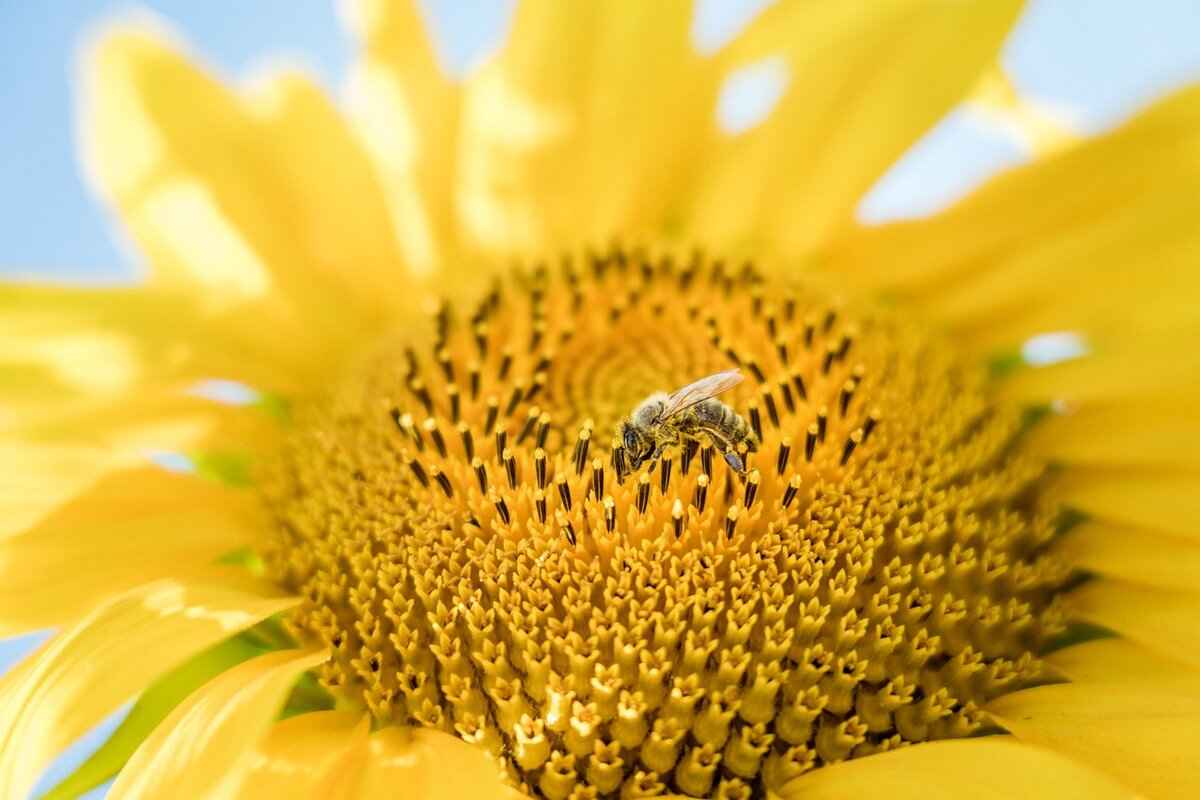
How Do Chia Seeds Support Hormonal Balance?
Chia seeds are often hailed as a superfood due to their impressive nutritional profile. Among the many benefits they offer, their role in supporting hormonal balance in women is particularly noteworthy. Understanding how chia seeds contribute to hormonal health can empower women to make informed dietary choices.
The omega-3 fatty acids found in chia seeds are crucial for hormone production. These healthy fats are known to reduce inflammation in the body, which can disrupt hormonal balance. By fostering an environment conducive to hormone synthesis, chia seeds promote overall hormonal health. This is especially important for women, as hormones play a vital role in various bodily functions, including menstrual cycles and reproductive health.
Furthermore, the high fiber content in chia seeds aids in digestion and regulates blood sugar levels. Maintaining stable blood sugar is essential for preventing insulin spikes, which can lead to hormonal imbalances. Women who consume adequate fiber often experience fewer mood swings and more stable energy levels, contributing to a more balanced hormonal environment.
Another significant aspect of chia seeds is their ability to regulate estrogen levels. Estrogen is a key hormone in the female body, influencing everything from reproductive health to mood. The lignans present in chia seeds can mimic estrogen and help maintain optimal levels, which is crucial for women experiencing hormonal fluctuations during different life stages.
- Omega-3 Fatty Acids: Essential for hormone production and reducing inflammation.
- Fiber: Aids digestion and regulates blood sugar, preventing insulin spikes.
- Lignans: Help maintain optimal estrogen levels and support hormonal balance.
Moreover, chia seeds are an excellent source of antioxidants, which help combat oxidative stress. Oxidative stress can lead to hormonal imbalances by damaging cells and tissues. By including chia seeds in your diet, you can bolster your body’s defenses against such stress, further supporting hormonal stability.
In addition to their direct effects on hormonal balance, chia seeds also promote overall well-being. Their nutrient density means that they provide essential vitamins and minerals that support various bodily functions. For instance, the calcium and magnesium in chia seeds contribute to bone health, while their protein content supports muscle maintenance and repair.
Incorporating chia seeds into your diet is simple and versatile. They can be added to smoothies, yogurt, or even baked goods, making it easy to enjoy their health benefits without altering your favorite recipes. For those looking to enhance their hormonal health, consider trying chia seed pudding or sprinkling them on salads for a nutritious boost.
In summary, chia seeds are a powerful ally in supporting hormonal balance in women. Their rich content of omega-3 fatty acids, fiber, and antioxidants work together to promote hormonal stability and overall health. By including chia seeds in your daily diet, you can take proactive steps toward achieving a more balanced hormonal profile.
Omega-3 Fatty Acids and Hormonal Health
Omega-3 fatty acids are crucial for maintaining overall health, especially for women. These essential fats, which are abundant in chia seeds, play a significant role in hormonal health. Understanding how omega-3s influence hormone production can help women optimize their well-being.
Omega-3 fatty acids are polyunsaturated fats that are vital for numerous bodily functions. They are classified into three main types: ALA (alpha-linolenic acid), EPA (eicosapentaenoic acid), and DHA (docosahexaenoic acid). Chia seeds are an excellent plant-based source of ALA, which the body can convert into EPA and DHA, though the conversion rate is relatively low.
The omega-3 fatty acids found in chia seeds are essential for hormone production. These healthy fats are involved in the synthesis of hormones like estrogen and progesterone, which are crucial for regulating the menstrual cycle and reproductive health. Additionally, omega-3s can help reduce inflammation, which is linked to hormonal imbalances.
Women experience unique hormonal changes throughout their lives, from puberty to menopause. Omega-3 fatty acids can help ease some of the symptoms associated with these changes. For instance, they may alleviate menstrual discomfort and support mood stability by influencing neurotransmitter function.
Chronic inflammation can disrupt hormonal balance and lead to various health issues, including polycystic ovary syndrome (PCOS) and endometriosis. Omega-3 fatty acids possess anti-inflammatory properties that help mitigate these risks. By incorporating chia seeds into your diet, you can harness these benefits, promoting better hormonal health and overall wellness.
- Chia Seed Smoothies: Blend chia seeds into your favorite smoothies for an omega-3 boost.
- Chia Pudding: Mix chia seeds with almond milk and let them soak overnight for a nutritious breakfast.
- Salads and Baked Goods: Sprinkle chia seeds on salads or incorporate them into muffins and breads for added nutrition.
While omega-3 fatty acids are generally safe, excessive consumption of chia seeds may lead to digestive issues such as bloating or gas. It is essential to introduce them gradually into your diet and ensure adequate hydration to prevent these side effects.
Incorporating omega-3 fatty acids from chia seeds into your diet can significantly enhance hormonal health for women. By supporting hormone production and reducing inflammation, these essential fats contribute to overall well-being. As part of a balanced diet, chia seeds can be a valuable ally in maintaining hormonal balance and supporting women’s health throughout various life stages.
Fiber’s Role in Hormonal Regulation
Chia seeds are often hailed as a superfood, and for good reason. Among their many benefits, the high fiber content stands out, particularly for women seeking to maintain a healthy hormonal balance. In this section, we will delve deeper into how fiber from chia seeds plays a crucial role in hormonal regulation and overall well-being.
Fiber is not just essential for digestive health; it also plays a significant role in regulating hormones. When women consume an adequate amount of fiber, it aids in the stabilization of blood sugar levels. This is particularly important because fluctuations in blood sugar can lead to insulin spikes, which may disrupt hormonal balance.
- Slow Digestion: The soluble fiber in chia seeds slows down the digestion process, causing a gradual release of glucose into the bloodstream. This prevents sudden spikes in blood sugar.
- Insulin Sensitivity: By maintaining stable blood sugar levels, fiber helps improve insulin sensitivity, which is vital for hormonal balance.
- Weight Management: High fiber intake can promote feelings of fullness, aiding in weight management, which is crucial for hormonal health.
Chia seeds are particularly rich in both soluble and insoluble fiber. Just two tablespoons of chia seeds contain approximately 10 grams of fiber, which is about one-third of the daily recommended intake for women. This high fiber content not only supports digestion but also plays a pivotal role in hormonal regulation.
When blood sugar levels are stable, the body can maintain a better balance of hormones, especially estrogen and progesterone. Fluctuations in these hormones can lead to various issues, including mood swings, menstrual irregularities, and even conditions like polycystic ovary syndrome (PCOS).
Furthermore, fiber supports the body’s detoxification processes. It helps eliminate excess hormones and toxins, which can accumulate and disrupt hormonal balance over time. A diet rich in fiber can thus be a proactive approach to maintaining hormonal health.
Integrating chia seeds into your daily meals is simple and versatile. Here are some practical tips:
- Chia Seed Smoothies: Add a tablespoon of chia seeds to your morning smoothie for an extra boost of fiber and nutrients.
- Chia Seed Pudding: Combine chia seeds with almond milk and let them sit overnight. This creates a delicious pudding that’s high in fiber.
- Baking: Incorporate chia seeds into your baking recipes, such as muffins or bread, for added nutrition.
While chia seeds are generally safe for most people, excessive consumption can lead to digestive discomfort, such as bloating or gas. It’s important to increase fiber intake gradually and ensure adequate hydration to avoid these issues.
Additionally, individuals with certain digestive disorders should consult with a healthcare provider before adding chia seeds to their diet.
In summary, the high fiber content in chia seeds not only aids in digestion but also plays a crucial role in regulating blood sugar levels and maintaining hormonal balance in women. By incorporating chia seeds into your diet, you can harness their benefits for improved hormonal health and overall well-being.
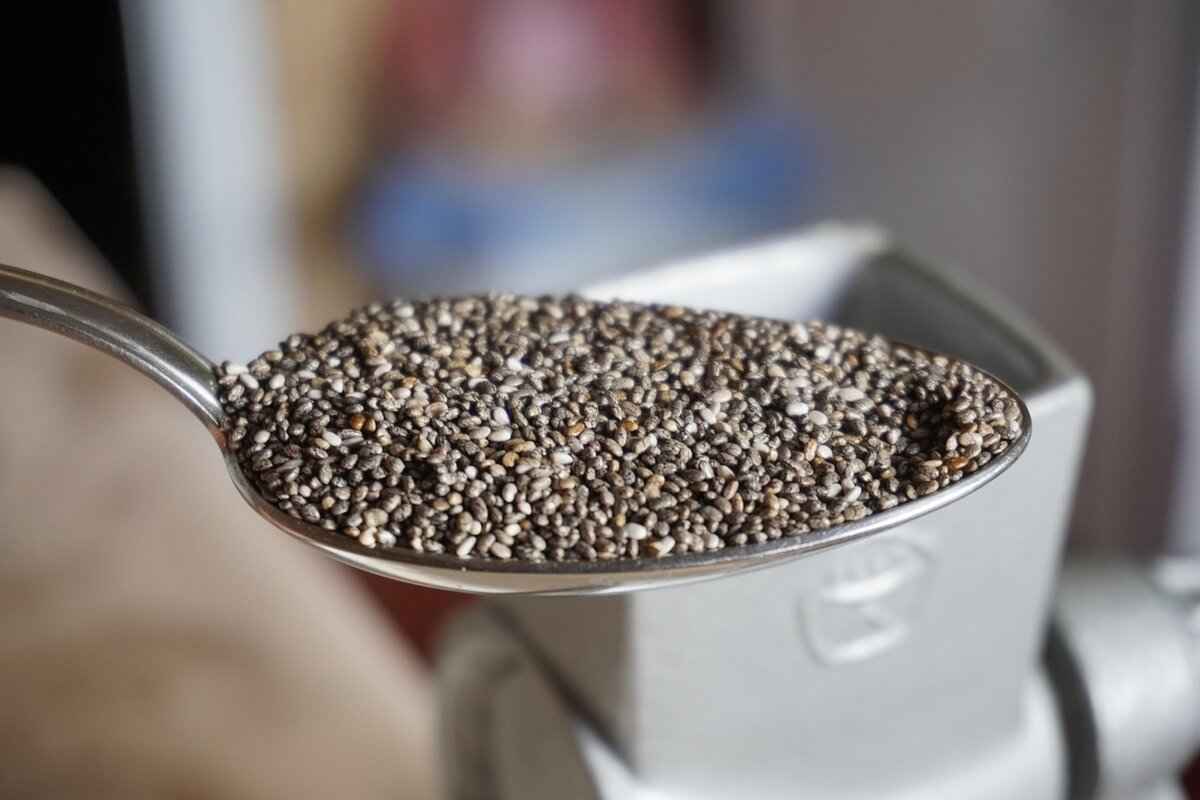
Chia Seeds and Skin Health: What’s the Connection?
Chia seeds have gained immense popularity in recent years, not only for their nutritional benefits but also for their positive effects on skin health. These tiny seeds, packed with essential nutrients, play a crucial role in promoting a radiant complexion and enhancing overall skin vitality. In this section, we will explore the connection between chia seeds and skin health, highlighting the key components that contribute to their effectiveness.
Chia seeds are a powerhouse of nutrients that can significantly enhance skin health. Their unique composition includes antioxidants, vitamins, and minerals that work together to nourish the skin from within.
One of the standout features of chia seeds is their high content of antioxidants. These compounds are essential for combating oxidative stress caused by free radicals, which can lead to premature aging and skin damage. By neutralizing these harmful agents, antioxidants help maintain a youthful appearance and protect the skin from environmental factors such as pollution and UV radiation.
Chia seeds can absorb up to 12 times their weight in water, making them an excellent source of hydration for the skin. Proper hydration is vital for maintaining skin elasticity and preventing dryness. When consumed regularly, chia seeds can help keep the skin plump and moisturized, reducing the appearance of fine lines and wrinkles.
Chia seeds are also rich in essential vitamins and minerals, including vitamin E, calcium, and magnesium. Vitamin E is known for its skin-protective properties, helping to repair damaged skin and promote healing. Calcium and magnesium contribute to overall skin health by supporting cellular function and maintaining skin structure.
The omega-3 fatty acids found in chia seeds are another critical component that benefits skin health. These healthy fats possess anti-inflammatory properties that can help reduce redness, irritation, and acne breakouts. Incorporating chia seeds into your diet can lead to a calmer, clearer complexion.
- Chia Seed Face Masks: Mix chia seeds with yogurt or honey to create a nourishing face mask. Apply it to your skin for 15-20 minutes before rinsing off for a refreshing treatment.
- Chia Seed Smoothies: Add chia seeds to your daily smoothies to boost your nutrient intake. This not only benefits your skin but also enhances overall health.
- Chia Seed Pudding: Prepare chia seed pudding as a healthy snack. Combine chia seeds with almond milk and your favorite sweetener for a delicious treat that supports skin health.
While chia seeds offer numerous benefits, it is essential to consume them in moderation. Overconsumption can lead to digestive issues such as bloating and gas. Always ensure you drink plenty of water when incorporating chia seeds into your diet to mitigate these effects.
In conclusion, chia seeds are a versatile superfood that can significantly enhance skin health. Their rich nutrient profile, including antioxidants, vitamins, and omega-3 fatty acids, makes them an excellent addition to any diet aimed at achieving a radiant complexion. By incorporating chia seeds into your daily routine, you can support your skin’s vitality and enjoy the numerous benefits they offer.
Antioxidants in Chia Seeds
play a crucial role in maintaining skin health and overall well-being. These tiny seeds, derived from the Salvia hispanica plant, are not just a trendy superfood; they are packed with nutrients that can significantly benefit women, particularly in the realms of hormonal balance and skin vitality.
Chia seeds are known for their high content of antioxidants, which help combat oxidative stress and neutralize free radicals in the body. Free radicals are unstable molecules that can cause cellular damage, leading to premature aging and various skin issues. By consuming chia seeds regularly, you can enhance your body’s ability to fend off these harmful agents, thereby promoting a more youthful and radiant appearance.
The antioxidants found in chia seeds, including quercetin, caffeic acid, and chlorogenic acid, contribute to skin health in several ways:
- Reducing Inflammation: Chronic inflammation can lead to skin conditions such as acne and eczema. The antioxidants in chia seeds help reduce inflammation, leading to clearer and healthier skin.
- Promoting Collagen Production: Collagen is essential for skin elasticity and firmness. Antioxidants support collagen synthesis, helping to maintain a youthful appearance.
- Protecting Against UV Damage: Exposure to UV rays can lead to skin damage and aging. Antioxidants help protect the skin from the harmful effects of UV radiation.
In addition to their antioxidant properties, chia seeds are excellent for hydration. They can absorb up to 12 times their weight in water, making them a fantastic source of moisture for the skin. Proper hydration is vital for maintaining skin elasticity and preventing dryness.
When chia seeds are soaked in water or added to smoothies, they create a gel-like consistency that not only enhances the texture of your meals but also provides your skin with the hydration it craves. This is especially beneficial for women, as dehydration can lead to dull and tired-looking skin.
To reap the full benefits of antioxidants in chia seeds, consider incorporating them into your daily diet. Here are some practical ways to do so:
- Chia Seed Smoothies: Blend chia seeds into your favorite smoothies for an antioxidant boost.
- Chia Pudding: Prepare chia seed pudding by soaking the seeds in almond milk or coconut milk overnight for a nutritious breakfast or snack.
- Sprinkling on Salads: Add chia seeds to salads for a crunchy texture and added nutrients.
While chia seeds are generally safe for most individuals, it is essential to consume them in moderation. Overconsumption may lead to digestive issues such as bloating or constipation. Always ensure you drink plenty of water when consuming chia seeds to facilitate digestion.
In rare cases, some individuals may experience allergic reactions to chia seeds. If you notice any adverse effects after including chia seeds in your diet, consult a healthcare professional.
In conclusion, incorporating chia seeds into your diet can provide significant benefits for your skin, thanks to their rich antioxidant content. By protecting against oxidative stress and promoting hydration, chia seeds can help you maintain a youthful and vibrant complexion.
Hydration and Skin Elasticity
When it comes to maintaining healthy skin, hydration plays a crucial role. One of the lesser-known benefits of chia seeds is their remarkable ability to absorb water. In fact, chia seeds can soak up to 12 times their weight in water, making them an exceptional source for hydration. This unique property not only helps in maintaining fluid balance in the body but also significantly contributes to skin health.
Proper hydration is essential for preserving skin elasticity and preventing dryness. When the skin is well-hydrated, it appears plumper and more youthful. Hydrated skin can also help reduce the appearance of fine lines and wrinkles, creating a smoother complexion. Dehydration, on the other hand, can lead to a dull appearance, increased sensitivity, and a higher likelihood of skin issues such as eczema or acne.
- Gel Formation: When soaked in water, chia seeds form a gel-like substance. This gel not only provides hydration but also helps to retain moisture in the skin.
- Rich in Nutrients: Chia seeds are packed with essential nutrients, including omega-3 fatty acids, antioxidants, and vitamins, which further support skin health.
- Fiber Content: The high fiber content in chia seeds aids in digestion, promoting better nutrient absorption and overall hydration from within.
Adding chia seeds to your diet is a simple yet effective way to boost hydration and skin health. Here are some practical ways to incorporate them:
1. **Chia Seed Water:** Soak 1-2 tablespoons of chia seeds in water for 30 minutes and drink it as a refreshing beverage.2. **Smoothies:** Blend chia seeds into your favorite smoothie for an added nutritional punch.3. **Salads:** Sprinkle chia seeds over salads to enhance texture and provide hydration benefits.4. **Baked Goods:** Incorporate chia seeds into muffins or bread for a nutritious twist.
While there are many ways to stay hydrated, chia seeds offer unique advantages:
- Natural Source: Unlike sugary drinks or processed foods, chia seeds provide a natural and healthy source of hydration.
- Versatility: They can be easily added to various dishes, making them a convenient option for anyone.
- Long-lasting Hydration: The gel-forming ability of chia seeds ensures that hydration is sustained over time, rather than providing a quick fix.
In summary, chia seeds are a powerful ally for those seeking to improve their skin health through enhanced hydration. By absorbing significant amounts of water and providing essential nutrients, they help maintain skin elasticity and combat dryness. Whether consumed in drinks, smoothies, or meals, chia seeds are an excellent addition to a healthy diet, promoting not just hydration but overall well-being.

How to Incorporate Chia Seeds into Your Diet?
Chia seeds have gained popularity as a superfood due to their impressive nutritional profile. These tiny seeds are not only packed with essential nutrients but are also incredibly versatile, making them easy to incorporate into various meals. In this section, we will explore different ways to add chia seeds to your diet, ensuring you reap their numerous health benefits.
Incorporating chia seeds into your meals can enhance your overall health. Their rich content of omega-3 fatty acids, fiber, and antioxidants supports both hormonal balance and skin health. But how can you easily include these tiny powerhouses in your daily routine?
- Smoothies: Adding chia seeds to smoothies is one of the easiest ways to boost their nutritional value. Simply blend your favorite fruits, vegetables, and a tablespoon of chia seeds for a delicious and filling drink.
- Yogurt Toppings: Sprinkle chia seeds on top of yogurt for added texture and nutrients. This combination makes for a perfect breakfast or snack option.
- Baked Goods: Incorporate chia seeds into your baking recipes. They can be added to muffins, breads, and pancakes without significantly changing the flavor while enhancing their health benefits.
- Chia Seed Pudding: For a nutritious dessert, mix chia seeds with milk or a dairy alternative. Let the mixture sit overnight, and you’ll have a creamy pudding that can be flavored with fruits or spices.
- Salads: Toss chia seeds into salads for an extra crunch. They can absorb moisture from the dressing, adding a unique texture and nutritional boost.
Here are a couple of quick recipes to inspire you:
1. Chia Seed Pudding: - 1/4 cup chia seeds - 1 cup almond milk - 1 tablespoon honey or maple syrup - Mix ingredients and refrigerate overnight. Top with fruits before serving.2. Chia Smoothie: - 1 banana - 1/2 cup spinach - 1 tablespoon chia seeds - 1 cup coconut water - Blend until smooth and enjoy!
While chia seeds are beneficial, moderation is key. A common recommendation is to start with 1-2 tablespoons per day. This amount provides ample nutrients without overwhelming your digestive system. Always ensure you drink plenty of water, as chia seeds can absorb significant amounts of liquid.
Incorporating chia seeds into your diet can lead to a variety of health benefits, such as:
- Improved Digestive Health: The high fiber content aids digestion and helps maintain regularity.
- Enhanced Heart Health: Omega-3 fatty acids contribute to cardiovascular well-being.
- Weight Management: Chia seeds can help you feel full longer, reducing overall calorie intake.
In conclusion, adding chia seeds to your diet is not only easy but also a delicious way to enhance your nutritional intake. Whether you choose to blend them into smoothies, sprinkle them on yogurt, or incorporate them into baked goods, the possibilities are endless. Start experimenting with these tiny seeds today!
Chia Seed Pudding Recipes
Chia seed pudding is not only a popular dish but also a nutritious option that can easily fit into a healthy lifestyle. It serves as a versatile base for a variety of flavors and ingredients, making it an ideal choice for breakfast, snacks, or even dessert. By combining chia seeds with milk or a dairy alternative and allowing them to soak overnight, you create a delightful and healthful treat that is both satisfying and beneficial.
Chia seed pudding is packed with nutritional benefits. These tiny seeds are loaded with omega-3 fatty acids, fiber, and protein, making them a superfood that supports overall health. The pudding can be customized to suit any taste preference, whether you enjoy fruity flavors, chocolate, or nutty undertones.
To make a basic chia seed pudding, follow these simple steps:
- Ingredients:
- 1/4 cup chia seeds
- 1 cup milk or dairy alternative (e.g., almond milk, coconut milk)
- 1-2 tablespoons sweetener (e.g., honey, maple syrup, or agave)
- 1 teaspoon vanilla extract (optional)
Instructions:
1. In a bowl, combine chia seeds, milk, sweetener, and vanilla extract.2. Stir well to ensure there are no clumps.3. Cover and refrigerate overnight (or at least 4 hours).4. Stir again before serving and enjoy your delicious chia seed pudding!
Once you’ve mastered the basic recipe, feel free to experiment with different flavors:
- Chocolate Chia Seed Pudding: Add 2 tablespoons of cocoa powder and a bit more sweetener for a rich chocolate flavor.
- Berry Bliss: Mix in fresh or frozen berries like strawberries, blueberries, or raspberries before refrigerating.
- Tropical Delight: Add mango puree and shredded coconut for a refreshing tropical twist.
- Nutty Banana: Mash a ripe banana and mix it in for a creamy, nutty flavor.
Chia seed pudding is not just delicious; it also offers numerous health benefits. The high fiber content aids in digestion and helps maintain a feeling of fullness, which can be beneficial for weight management. Additionally, the omega-3 fatty acids promote heart health and reduce inflammation in the body.
Chia seed pudding can be served in various ways:
- Top with fresh fruits, nuts, or seeds for added texture and flavor.
- Layer with yogurt for a parfait-style treat.
- Use as a filling for smoothies or desserts.
Store any leftover chia seed pudding in an airtight container in the refrigerator. It can last for up to five days, making it a convenient meal prep option for busy weeks.
Incorporating chia seed pudding into your diet is a simple and delicious way to boost your nutritional intake. With endless flavor possibilities, it’s a treat that can be enjoyed by anyone, regardless of dietary preferences.
Chia Seeds in Smoothies
When it comes to enhancing the nutritional value of your smoothies, chia seeds are a powerhouse ingredient that should not be overlooked. These tiny seeds, packed with essential nutrients, can transform an ordinary smoothie into a nutrient-dense meal that supports overall health and well-being.
Chia seeds are renowned for their impressive health benefits. They are an excellent source of fiber, which aids in digestion and helps you feel fuller for longer. This makes them a perfect addition to smoothies, especially for those looking to manage their weight or simply enjoy a more satisfying drink.
Another significant benefit of chia seeds is their high content of omega-3 fatty acids. These healthy fats are crucial for heart health and can help reduce inflammation in the body. By adding chia seeds to your smoothie, you are not only enhancing its flavor but also enriching it with these essential fatty acids.
- Soak Before Blending: Soaking chia seeds in water or your favorite milk for about 10-15 minutes before adding them to your smoothie can help them expand and create a gel-like consistency. This can add a delightful texture to your drink.
- Blend Them In: You can also blend whole chia seeds directly into your smoothie. They will break down slightly and still provide all the nutritional benefits.
- Chia Seed Gel: Create a chia seed gel by mixing 1 part chia seeds with 4 parts water. Let it sit until it thickens, then add it to your smoothie for an extra boost.
Chia seeds have a mild flavor, making them versatile for various smoothie recipes. Here are some delicious combinations to try:
- Berry Blast: Blend chia seeds with mixed berries, banana, and almond milk for a refreshing treat.
- Green Goddess: Combine chia seeds with spinach, avocado, apple, and coconut water for a nutrient-packed green smoothie.
- Chocolate Delight: Mix chia seeds with cocoa powder, banana, and peanut butter for a rich, indulgent flavor.
The inclusion of chia seeds in your smoothies offers numerous health benefits. Their high fiber content supports digestive health, while the omega-3 fatty acids contribute to heart health. Additionally, chia seeds are a source of antioxidants, which help protect the body from oxidative stress.
While chia seeds are generally safe for most individuals, it’s essential to consume them in moderation. Overconsumption can lead to digestive discomfort. It’s advisable to start with a small amount, such as one tablespoon, and gradually increase as your body adjusts.
Incorporating chia seeds into your smoothies is a simple yet effective way to enhance their nutritional profile. With their rich content of fiber, omega-3 fatty acids, and antioxidants, chia seeds can help you create delicious and healthful smoothies that support your overall wellness. So, the next time you blend up a smoothie, consider adding this superfood for an extra boost!
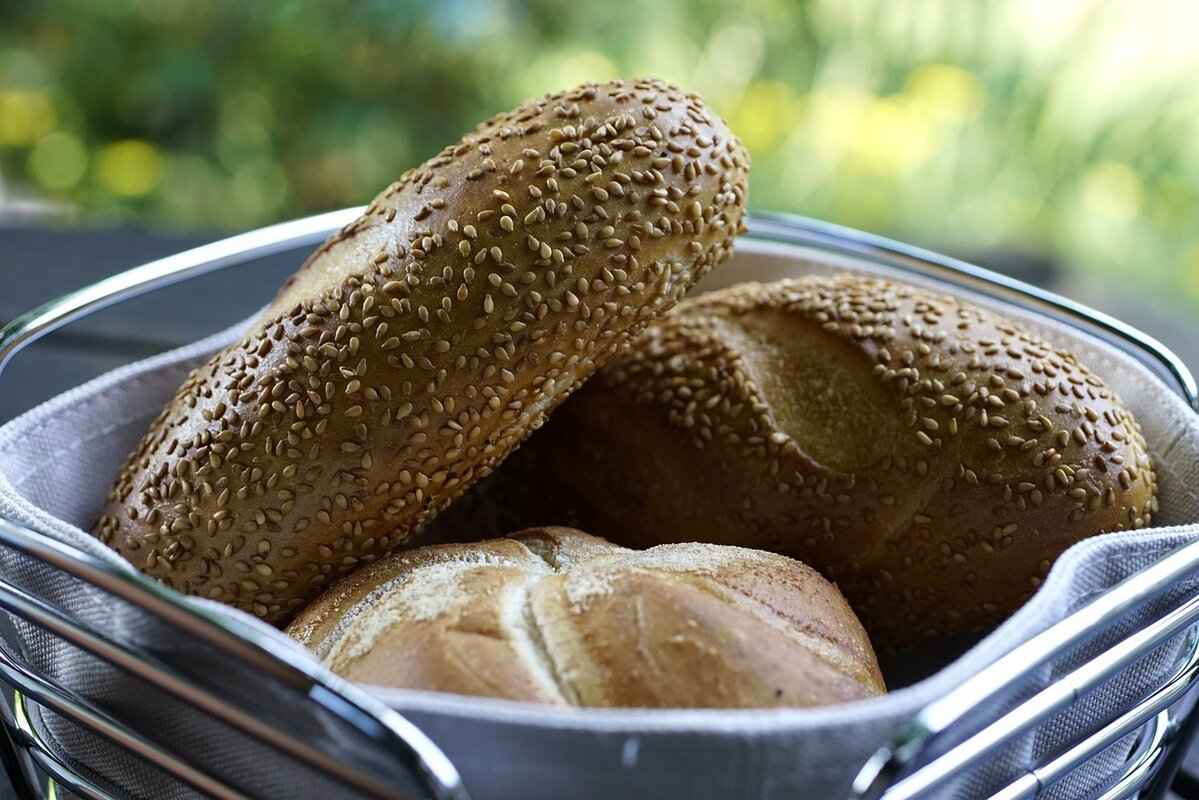
Potential Side Effects of Chia Seeds
Chia seeds have gained immense popularity as a superfood, celebrated for their numerous health benefits. However, like any food, they come with potential side effects that consumers should be aware of. Understanding these effects can ensure safe and enjoyable consumption of chia seeds.
While chia seeds are generally safe for most women, some individuals may experience certain side effects, especially when consumed in large quantities. Here are the most common issues:
- Digestive Discomfort: One of the most frequently reported side effects is digestive discomfort. This can manifest as bloating, gas, or even constipation. Due to their high fiber content, it is recommended to gradually introduce chia seeds into your diet to allow your digestive system to adjust.
- Dehydration: Chia seeds can absorb up to 12 times their weight in water. If consumed without adequate hydration, they may lead to digestive blockages. It’s crucial to drink plenty of water when incorporating chia seeds into your meals.
- Allergic Reactions: Although rare, some individuals may have an allergic reaction to chia seeds. Symptoms can include skin rashes, itching, or gastrointestinal distress. If you suspect an allergy, it is advisable to consult a healthcare professional.
To enjoy the benefits of chia seeds while minimizing potential side effects, consider the following guidelines:
- Start Small: Begin with a small amount, such as one teaspoon, and gradually increase your intake as your body adjusts.
- Stay Hydrated: Ensure you drink plenty of water throughout the day, especially when consuming chia seeds, to prevent dehydration and digestive issues.
- Mix with Other Foods: Incorporate chia seeds into smoothies, yogurt, or oatmeal. This not only enhances the flavor but also helps with digestion.
While chia seeds are beneficial for many, certain individuals should exercise caution:
- Those with Digestive Disorders: If you have a history of digestive issues, consult a healthcare provider before adding chia seeds to your diet.
- Pregnant or Nursing Women: Although chia seeds can be nutritious, pregnant or nursing women should discuss their dietary choices with a healthcare professional to ensure safety.
In conclusion, chia seeds can be a valuable addition to a woman’s diet, offering numerous health benefits. However, it is essential to be aware of potential side effects and take steps to consume them safely. By understanding your body’s response and following recommended guidelines, you can enjoy the advantages of chia seeds while minimizing any adverse effects.
Digestive Issues Related to Overconsumption
Chia seeds are celebrated for their numerous health benefits, especially for women. However, like any superfood, moderation is key. One important aspect to consider is the potential for digestive issues when chia seeds are consumed in excess. Understanding these issues can help you enjoy the benefits of chia seeds without discomfort.
While chia seeds are a great source of fiber and essential nutrients, excessive intake can lead to bloating, gas, and even constipation. These digestive disturbances are primarily due to the high fiber content in chia seeds, which, if introduced too quickly into the diet, can overwhelm the digestive system.
The fiber in chia seeds is mostly soluble, which means it absorbs water and forms a gel-like substance in the gut. This property is beneficial for digestion, but if you consume too many chia seeds without adequate hydration, it can lead to discomfort. The seeds can expand significantly in your stomach, causing a feeling of fullness that may lead to bloating.
To avoid digestive issues, it is crucial to gradually increase your intake of chia seeds. Start with a small amount, such as one teaspoon, and slowly work your way up to a tablespoon or more as your body adjusts. This gradual approach allows your digestive system to adapt to the increased fiber intake.
Staying adequately hydrated is essential when consuming chia seeds. Since they can absorb up to 12 times their weight in water, it’s important to drink plenty of fluids. A good rule of thumb is to drink at least 8 ounces of water for every tablespoon of chia seeds consumed. This will help prevent the seeds from expanding too much in your digestive tract, reducing the risk of bloating and discomfort.
- Bloating: A common sign that you may have eaten too many chia seeds is a feeling of fullness or swelling in the abdomen.
- Gas: Increased fiber intake can lead to gas production as your gut bacteria ferment the fiber.
- Constipation: Without adequate hydration, the fiber in chia seeds may harden in the intestines, leading to constipation.
Absolutely! By following a few simple guidelines, you can enjoy the health benefits of chia seeds without experiencing digestive issues. Start slow, stay hydrated, and listen to your body. If you notice any discomfort, it may be a sign to reduce your intake or consult a healthcare professional.
If you find that chia seeds cause digestive discomfort despite taking precautions, consider exploring other sources of omega-3 fatty acids and fiber. Options such as flaxseeds, hemp seeds, and pumpkin seeds can provide similar benefits without the risk of bloating or gas.
In conclusion, while chia seeds are a powerhouse of nutrition, it’s vital to consume them mindfully. By understanding the potential digestive issues and taking steps to mitigate them, you can fully enjoy the benefits of these tiny seeds.
Allergic Reactions
When it comes to incorporating superfoods into your diet, chia seeds are often at the forefront due to their numerous health benefits. However, it is important to be aware of potential that may arise from their consumption. Understanding these reactions can help you make informed dietary choices.
While chia seeds are generally considered safe, some individuals may experience allergic reactions. Common signs include:
- Skin Reactions: Rashes, hives, or itching may occur shortly after consuming chia seeds.
- Gastrointestinal Issues: Symptoms such as nausea, vomiting, or diarrhea can indicate an allergic response.
- Respiratory Problems: Difficulty breathing, wheezing, or nasal congestion may arise in severe cases.
Chia seeds belong to the mint family and are less likely to provoke allergies compared to other seeds like sesame or sunflower. However, anyone with a known seed allergy should approach chia seeds with caution. It’s essential to consult with a healthcare provider if you have a history of food allergies.
To minimize the risk of an allergic reaction, consider the following tips:
- Start Small: Begin with a small amount of chia seeds to see how your body reacts. Gradually increase the quantity as tolerated.
- Monitor Your Body: Keep track of any adverse symptoms after consuming chia seeds. This will help identify any potential allergies early on.
- Consult a Professional: If you suspect an allergy, seek advice from a healthcare professional or an allergist for appropriate testing.
If you notice any symptoms of an allergic reaction after consuming chia seeds, it is important to take action:
- Stop Consumption: Immediately cease eating chia seeds and any products containing them.
- Seek Medical Attention: If symptoms are severe, such as difficulty breathing or swelling of the face or throat, seek emergency medical help.
- Document Your Reaction: Keep a record of what you consumed and the symptoms experienced. This information can be helpful for healthcare providers.
If you have a known allergy to chia seeds, it is best to avoid them completely. However, there are numerous other seeds and superfoods that offer similar health benefits, such as:
- Flaxseeds: Rich in omega-3 fatty acids and fiber, flaxseeds are a great alternative.
- Hemp Seeds: These seeds provide protein and healthy fats, making them a nutritious option.
- Pumpkin Seeds: Packed with minerals and antioxidants, pumpkin seeds are another excellent choice.
In conclusion, while chia seeds offer remarkable health benefits, it is crucial to be aware of the potential for allergic reactions. By understanding the signs, introducing them cautiously, and knowing what actions to take if an allergic reaction occurs, you can enjoy the benefits of chia seeds safely. Always consult with a healthcare professional if you have concerns about allergies or dietary changes.

Final Thoughts on Chia Seeds for Women’s Health
Chia seeds have gained significant attention in recent years, particularly regarding their health benefits for women. These tiny, nutrient-rich seeds are not just a trendy superfood; they offer a plethora of advantages, especially in the realms of hormonal regulation and skin health. Incorporating chia seeds into your daily diet can lead to remarkable improvements in overall well-being.
Chia seeds, derived from the Salvia hispanica plant, are packed with essential nutrients. They are an excellent source of omega-3 fatty acids, fiber, and various vitamins and minerals. This unique nutritional profile makes them a valuable addition to any health-conscious diet.
For women, maintaining hormonal balance is crucial for overall health. Chia seeds can play a vital role in this aspect due to their rich content of omega-3 fatty acids and fiber.
Yes! The omega-3 fatty acids found in chia seeds are essential for hormone production. These healthy fats help to reduce inflammation and support the synthesis of hormones, which can lead to improved hormonal health.
Absolutely! The high fiber content in chia seeds aids in digestion and helps regulate blood sugar levels. This regulation is vital in preventing insulin spikes, which can disrupt hormonal balance in women.
Chia seeds are not only beneficial for hormonal balance but also for maintaining healthy skin. Their rich content of antioxidants, vitamins, and minerals contributes to a radiant complexion.
Chia seeds are rich in antioxidants that combat oxidative stress and free radicals. This property is essential for protecting the skin from aging and environmental damage, promoting a youthful appearance.
Chia seeds can absorb up to 12 times their weight in water, making them excellent for hydration. Proper hydration is crucial for maintaining skin elasticity and preventing dryness, which is essential for a healthy complexion.
Incorporating chia seeds into your diet is easy and versatile. Here are some popular methods:
- Chia Seed Pudding: Mix chia seeds with milk or a dairy alternative and let them soak overnight to create a delicious, healthful treat.
- Smoothies: Add chia seeds to your smoothies for an extra boost of fiber and omega-3s, making them more filling and nutritious.
- Baked Goods: Sprinkle chia seeds into muffins, breads, or pancakes for added nutrition without altering the flavor.
While chia seeds are generally safe for most women, it’s important to be aware of potential side effects. Some individuals may experience digestive issues if consumed in excess.
Excessive intake of chia seeds can lead to bloating, gas, or constipation. It’s crucial to gradually increase their intake and ensure adequate hydration to avoid these issues.
Though rare, some individuals may have an allergic reaction to chia seeds. Monitoring for any adverse effects when introducing them into your diet is essential.
In summary, chia seeds offer numerous benefits for women, particularly in hormonal regulation and skin health. Their impressive nutritional profile makes them a valuable addition to any diet aimed at improving overall well-being. By incorporating chia seeds into your meals, you can enjoy their health benefits while enhancing your dietary variety.
Frequently Asked Questions
- What are the main health benefits of chia seeds for women?
Chia seeds are packed with omega-3 fatty acids, fiber, and antioxidants, which can help support hormonal balance, improve skin health, and provide overall nutritional benefits. They play a crucial role in regulating estrogen levels and promoting a radiant complexion.
- How can I incorporate chia seeds into my daily diet?
Incorporating chia seeds into your diet is a breeze! You can add them to smoothies, yogurt, or baked goods. A popular option is chia seed pudding, which is made by soaking the seeds in milk or a dairy alternative overnight for a delicious treat.
- Are there any side effects of consuming chia seeds?
While chia seeds are generally safe, overconsumption can lead to digestive issues such as bloating or gas. It’s important to start with small amounts and stay hydrated. Additionally, some individuals may have rare allergic reactions, so monitoring your body’s response is key.
- How do chia seeds support hormonal health?
The omega-3 fatty acids in chia seeds aid in hormone production and reduce inflammation, while their high fiber content helps regulate blood sugar levels, preventing insulin spikes that can disrupt hormonal balance.
- Can chia seeds help with skin hydration?
Absolutely! Chia seeds can absorb up to 12 times their weight in water, making them excellent for hydration. Proper hydration is essential for maintaining skin elasticity and preventing dryness, contributing to a youthful appearance.


